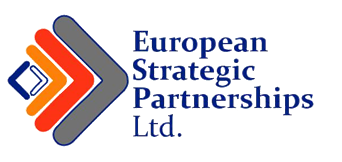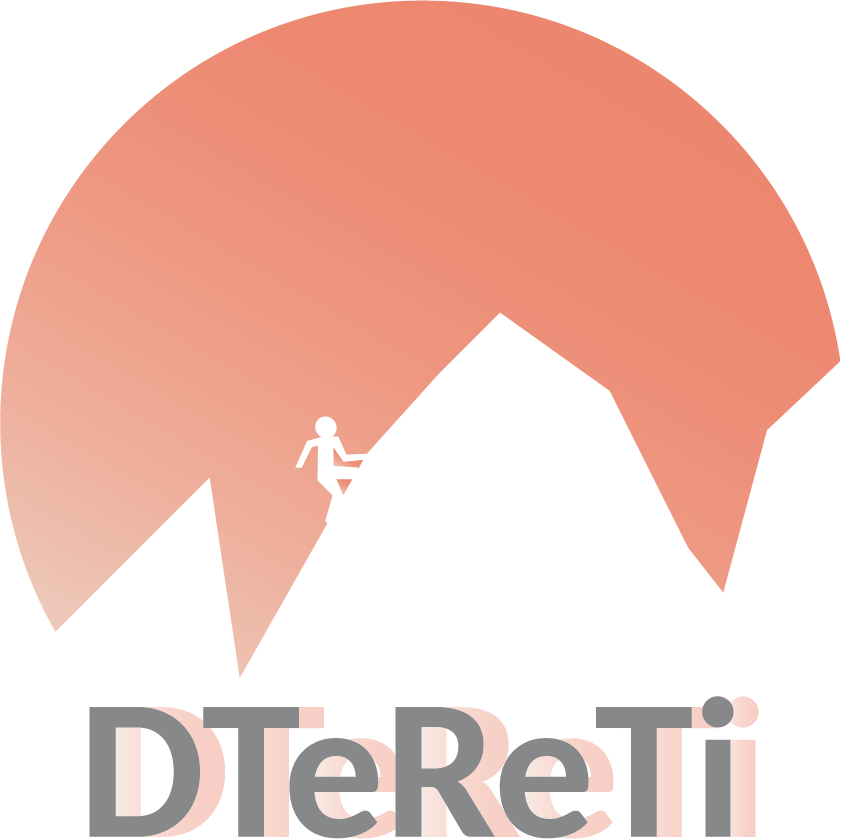DTeReTi
Training and digital education on responsible tourism initiatives
Digital Training and Education on Responsible Tourism Initiatives (DTeReTi)
Agreement №: 2020-1-UK01-KA226-VET-094699
Key Action 2, Strategic Partnerships in VET Education under Erasmus+ Programme 2014 – 2020
Project Idea
Although the negative impact of Covid-19 on the tourism industry, it remains one of the world’s largest and fastest growing economic sectors. There is a growing trend and a raising consumer awareness for sustainable and responsible tourism.
DTeReTi is a project in partnership of three organizations from the UK, Italy and Bulgaria, driven by the same idea of successfully implementing responsible tourism initiatives. One of the organization’s priorities for the project is the development of an interactive set of teaching materials (the Compendium DTeReTi) to enable learners and trainers to develop applied knowledge and skills that are transferable and applicable in different contexts, in particular for the successful implementation of responsible tourism initiatives in their organizations.
DTeReTi project goals are to:
- Create awareness of responsible tourism, understand the business opportunities it offers and how to capitalize on them.
- Promote and stimulate specialized tourism rather than mass tourism.
- Develop innovative training approaches to support competitiveness and employment at regional and local level.
- Support the adoption of innovative approaches and digital technologies for teaching and learning.
- Develop partnerships that support the creation and implementation of good practices in responsible tourism.
The main target group of the project are small businesses, individual entrepreneurs working in specialized tourism, family houses, small municipalities, incl. rural municipalities. This target group includes end-users which can directly benefit from the project results. Trainers and other staff of tourism-related associations, consulting and business supporting organizations will benefit from DTeReTi as well.
Partners

European Strategic Partnerships Ltd., United Kingdom
European Strategic Partnerships Ltd. (ESP) is also a VET provider institution, sending and hosting organization based in London, the UK. The company offers as well digital and onsite professional trainings in various qualifications, mainly in the field of Hospitality and Restaurant Management. The main direction of ESP activities is the on-site corporate training for the management and operational staff of hotels and restaurants. The company works with 25 highly educated and experienced trainers, using innovative and interactive teaching methods. That is why the company is a consultant and training organization of hotels and restaurants in the UK and abroad. In addition to its theoretical base, the Company maintains partnerships with a number of hotels and restaurants where practical training of trainees is held and where they can learn the latest innovations and trends in business.
European Strategic Partnerships Ltd. has voluntary members who are young people and active citizens participating voluntarily in all above-mentioned activities. They work to integrate and overcome the problems of young people. In the organization we have as members young people with special needs and fewer opportunities who take an active part in the activities and help solve their problems.
Website:

Euroform RFS, Italy
Euroform RFS is an Italian not for profit organization founded in 1996 and specialized in training and career guidance. Over the years, Euroform RFS has expanded its training offer dedicated to different types of professions. Today it boasts a wide range of courses in several sectors (IT, languages, workplace safety, business administration and management, etc.).
Euroform RFS promotes international mobility through the training abroad of students, apprentices, recent graduates, graduates and young unemployed thanks to participation in various EU projects.
Euroform RFS operates as an organization accredited by the Regions of Calabria and Piedmont for orientation and job placement.
Euroform RFS believes in and promotes the social inclusion of minorities and disadvantaged people; since 2014 it has been working to foster the integration of migrants and asylum seekers in Italy.
Euroform RFS promotes research and development interventions in the education sector to constantly test innovative teaching methods and tools.
Website:

NGO Check Point Sofia, Bulgaria
NGO “Check Point Sofia” is a non-profit organization founded in Sofia, Bulgaria. The organization is fully focused on the development of VET and youth activities, improving the status of youth and promoting youth civic engagement, mainly through developing effective and active measures for their development.
The company is actively working to promote the tourism regions in Bulgaria, implement sustainable tourism practices and has a very strong corporate responsibility to support the local community. The organization is focused on the continuous internal training for ensuring product quality and competitive skills development.
The professionals in the organization have long experience in working with people at risk of social exclusion. They apply successful models and practices for inclusion through educational and training activities. “Check Point Sofia” applies methods of non-formal training, proven to be effective in dealing with difficult target groups. The organization has a strong partnership with various institutions and NGO.
Website:
Associated Partners

British Tourism Industry Group
BTIG is VisitBritain’s main stakeholder group, meeting on a quarterly basis. It brings together senior representatives of Government, industry and tourism bodies to discuss issues of relevance to the industry. By facilitating a strategic dialogue between VisitBritain and the wider tourism industry, BTIG allows VisitBritain to fulfil its statutory role as a trusted advisor to government on tourism matters. The group is chaired by VisitBritain’s Chief Executive, Sally Balcombe.

Italian Association for Responsible Tourism
It is a non-governmental and non-profit association. It has no profit-making intentions, either direct or indirect. AITR is inspired by ethical and democratic principles and so promotes and coordinates activities that support a tourism that is responsible, sustainable and ethical. It aims to raise awareness among citizens, promote lifestyles and a consumerism that is fair to all involved.

Bulgarian Tourism Chamber
It is the first and the biggest non-governmental organization in Bulgaria dealing with the tourism topics. It comprises over 800 members – organizations from the all regions in Bulgaria – hotel and restaurant management companies and proprietors, travel agencies, non-government organizations, educational establishments, advertisers, insurers, individual members. It is a member of the International Council of Tourism Partners (ICTP) and the National Council of Tourism. Its objectives are to unite, represent and defend the interests of its members; to assist in creating the conditions for sustainable tourism development; to contribute to the training and qualification of personnel in tourism; to assist the government and non-governmental organizations in the preparation of regulations for the sector of tourism; to participate in the promotion of Bulgarian tourist products and to contribute to the improvement of the quality of tourism products and protect the interests of consumers; to promote tourism responsible practices. The involvement of the above-mentioned organizations will support project activities and contribute to dissemination activities. It will also help for the multiplication effect of the project and the wide spread of the project results on national and European level.
British Tourism Industry Group
BTIG is VisitBritain’s main stakeholder group, meeting on a quarterly basis. It brings together senior representatives of Government, industry and tourism bodies to discuss issues of relevance to the industry. By facilitating a strategic dialogue between VisitBritain and the wider tourism industry, BTIG allows VisitBritain to fulfil its statutory role as a trusted advisor to government on tourism matters. The group is chaired by VisitBritain’s Chief Executive, Sally Balcombe.
Website:
British Tourism Industry Group
Italian Association for Responsible Tourism
It is a non-governmental and non-profit association. It has no profit-making intentions, either direct or indirect. AITR is inspired by ethical and democratic principles and so promotes and coordinates activities that support a tourism that is responsible, sustainable and ethical. It aims to raise awareness among citizens, promote lifestyles and a consumerism that is fair to all involved.
Website:
Italian Association for Responsible Tourism
Bulgarian Tourism Chamber
It is the first and the biggest non-governmental organization in Bulgaria dealing with the tourism topics. It comprises over 800 members – organizations from the all regions in Bulgaria – hotel and restaurant management companies and proprietors, travel agencies, non-government organizations, educational establishments, advertisers, insurers, individual members. Its objectives are to unite, represent and defend the interests of its members; to assist in creating the conditions for sustainable tourism development; to contribute to the training and qualification of personnel in tourism; to assist the government and non-governmental organizations in the preparation of regulations for the sector of tourism; to participate in the promotion of Bulgarian tourist products and to contribute to the improvement of the quality of tourism products.
Intellectual outputs
IO1 - Learner's Guide "How to become responsible?"
Overview of Learner’s Guide “How to Become Responsible”:
The Learning Guide for SMEs in tourism titled “How to become responsible?” provides a step-by-step approach to implementing responsible tourism practices in SMEs. The Guide includes five sections: Background and understanding of responsible tourism, strategy development, implementation, requirements, and an overview. The Guide is designed to facilitate SMEs in successfully applying responsible tourism practices in their organizations. It can be used as a self-learning tool by SMEs and tourism-related associations, business support organizations, and educational organizations to inform and train their clients, students, or trainees. The Learner’s Guide can also be used by SMEs and entrepreneurs for self-assessment to determine their awareness level and identify areas where they may need to improve their knowledge of responsible tourism practices.
Learning Objectives:
The learning objectives of the “How to become responsible?” Learner’s Guide are designed to help students or trainees gain the knowledge and skills needed to implement responsible tourism practices in their organizations. The main learning objectives include:
- Understanding the principles of responsible tourism: Students or trainees will learn the principles of responsible tourism, including environmental protection, cultural preservation, and community engagement.
- Developing a responsible tourism strategy: Students or trainees will learn how to create a responsible tourism strategy that integrates sustainable practices into their organization’s operations.
- Implementing responsible tourism practices: Students or trainees will learn how to implement responsible tourism practices in their organization, including reducing waste, conserving energy and water, and engaging with the local community.
- Measuring the impact of responsible tourism practices: Students or trainees will learn how to measure the impact of responsible tourism practices, including their environmental, social, and economic effects.
- Marketing responsible tourism initiatives: Students or trainees will learn how to market responsible tourism initiatives to customers and stakeholders effectively.
Structure:
The Learner’s Guide is divided into five sections:
- Overview.
- Background and understanding of responsible tourism.
- Developing a strategy.
- Implementation.
- Requirements.
Description of Content:
- The Overview section introduces the key concepts and practices covered in the Guide. In addition, this section emphasizes the importance of a holistic and sustainable approach to tourism practices, balancing economic, environmental, and social factors.
- In the Background and understanding of responsible tourism section, learners will understand the definition of responsible tourism, the triple bottom line approach, and the principles of responsible tourism.
- The Developing a strategy section focuses on the importance of developing a responsible tourism strategy and how to create a strategy that aligns with the organization’s goals and objectives.
- In the Implementation section, learners will learn how to implement a responsible tourism strategy, including the importance of communication and training and the role of monitoring and evaluation in ensuring the strategy’s effectiveness.
- In the final section, Requirements, learners will learn about the various legal, regulatory, and ethical requirements that organizations must comply with to be responsible tourism practitioners.
IO2 - Learning Guide "How to promote my responsible image (CSR and RBI)?"
Overview for Learner’s Guide “How to promote my responsible image (CSR and RBI)?”:
The “DTeReTi Learner’s Guide – How to promote my responsible image (CSR and RBI)?” is a comprehensive manual designed to assist SMEs and entrepreneurs in the tourism industry in promoting their Corporate Social Responsibility (CSR) and Responsible Brand Image (RBI). The Guide is divided into four main sections, which cover different aspects of promoting responsible tourism initiatives, including Corporate Social Responsibility in your company, Responsible Brand Image of your company, Ways to promote your image of CSR and RBI in tourism, and Capitalizing on online opportunities for promotion. Each section includes practical examples and case studies to help illustrate key concepts and step-by-step guidance to help businesses implement responsible tourism practices successfully. The Guide is intended to be used as a self-learning tool by SMEs and entrepreneurs in the tourism industry and by tourism-related associations and business supporting organizations to train and inform their clients.
Learning Objectives:
The “How to promote my responsible image (CSR and RBI)?” Learner’s Guide aims to equip students or trainees in the tourism industry with the knowledge and skills to successfully promote their Corporate Social Responsibility (CSR) and Responsible Brand Image (RBI). By using this Guide, students or trainees will gain the following:
- Knowledge of best practices and strategies for promoting responsible tourism initiatives in their company, including key concepts and techniques for implementing CSR and RBI.
- Practical skills to implement responsible tourism practices, including step-by-step guidance for integrating CSR and RBI into their company’s operations and marketing efforts.
- An understanding of how to target specific audiences and effectively promote their responsible image of their company using a variety of online and offline channels.
- Awareness of the benefits of maintaining an authentic and transparent brand image in promoting responsible tourism, including building brand loyalty and attracting a broader customer base.
- Insights from real-life case studies and examples to illustrate key concepts and help students or trainees apply what they have learned to their businesses.
Structure:
The “How to promote my responsible image (CSR and RBI)?” Learner’s Guide is structured to enable students or trainees in the tourism industry to gain a comprehensive understanding of responsible tourism initiatives and how to promote them effectively. The Guide is divided into five main sections:
- Corporate Social Responsibility in your company.
- Responsible Brand Image of your company.
- Ways to promote your image of CSR and RBI in tourism.
- Capitalize on online opportunities for promotion.
- Overview.
Description of Content:
The “How to promote my responsible image (CSR and RBI)?” Learner’s Guide covers a range of key concepts and practices related to promoting responsible tourism initiatives. The different sections of the Guide are interrelated and build upon each other. The first section provides the foundational knowledge necessary to understand and implement responsible tourism practices, while the second section guides how to create an authentic and transparent brand image that aligns with those practices. The third and fourth sections then provide specific strategies and techniques for effectively promoting responsible tourism initiatives to target audiences, both online and offline. Here is an overview of the main points covered in each section of the Guide:
- Corporate Social Responsibility in your company section provides an overview of Corporate Social Responsibility (CSR) and its importance in the tourism industry. It includes key concepts and techniques for implementing CSR, such as identifying stakeholders, creating a CSR strategy, and measuring the impact of CSR initiatives.
- Responsible Brand Image of your company section explains the concept of Responsible Brand Image (RBI) and how it relates to CSR. In addition, it includes guidance on how to build and maintain an authentic and transparent brand image, including tips on creating a brand message, communicating with customers, and monitoring brand reputation.
- Ways to promote your image of CSR and RBI in tourism section explores various strategies for promoting responsible tourism initiatives, such as partnerships with other businesses, community engagement, and event sponsorship. It also includes guidance on how to target specific audiences and effectively promote responsible tourism initiatives through a variety of online and offline channels.
- Capitalizing on online opportunities for promotion section focuses specifically on the importance of online promotion for responsible tourism initiatives. It includes guidance on how to optimize social media channels, manage online reviews, and leverage influencer marketing to promote responsible tourism practices.
- The Overview section summarises the key concepts and practices covered in the Guide, along with additional resources and best practice examples.
IO3 - Learning Guide "How to set up a local network of responsible tourist companies?"
Overview for Learner’s Guide “How to set up a local network of responsible tourist companies?”:
The Learning Guide “How to set up a local network of responsible tourist companies?” provides a practical and hands-on approach for small and medium-sized tourism enterprises (SMEs) to establish a local network representing itself as a responsible and sustainable region. The Guide covers essential topics, including identifying necessary stakeholders, resources, developing vision and mission statements, creating guidelines for membership, communication, and outreach plans, monitoring and evaluating performance, and reviewing and updating guidelines regularly. The Guide also includes good practices and examples to illustrate these concepts in practice. The Learning Guide aims to stimulate SMEs in tourism to collaborate and join forces to increase the impact of responsible tourism at a local and national level.
Learning Objectives:
Using this Guide, students or trainees will gain knowledge and skills related to responsible tourism, stakeholder engagement, governance, communication and outreach, monitoring and evaluation, and sustainability. They will also gain a practical understanding of how to set up a local network of responsible tourist companies that can positively impact their local area. The learning objectives of the “DTeReTI Learner’s Guide – How to set up a local network of responsible tourist companies?” are as follows:
- Identify the key stakeholders involved in setting up a local network of responsible tourist companies.
- Develop a comprehensive understanding of the resources needed to establish and run a successful network.
- Learn how to establish an effective governance structure and decision-making processes.
- Understand the importance of creating a communication and outreach plan to promote the network to potential members and the wider public.
- Develop the ability to monitor and evaluate the performance of network members.
- Learn how to regularly review and update the network’s guidelines and criteria for membership.
- Develop a plan to ensure the network’s sustainability through diverse stakeholder engagement and collaboration.
Structure:
The “DTeReTi Learner’s Guide – How to set up a local network of responsible tourist companies” is structured into five sections:
- Who do you need?
- What do you need?
- How to set up the network?
- How to present the network?
- Overview.
Description of Content:
The “DTeReTI Learner’s Guide – How to set up a local network of responsible tourist companies?” covers various important topics for creating a successful network, including stakeholder engagement, governance structure, budget planning, sustainability, member evaluation, and effective promotion. The main points of the content are:
- The “Who do you need?” section of the “DTeReTi Learner’s Guide – How to set up a local network of responsible tourist companies?” outlines the key stakeholders that are necessary for establishing and running a thriving network of responsible tourism companies. The section covers the importance of identifying potential members, partners, and stakeholders, such as local government officials, tourism associations, and non-governmental organizations. It also emphasizes the need to engage with the local community and other key players in the tourism industry to ensure that the network’s activities align with the needs and priorities of the area. The main points of the content are identifying and reaching out to potential members, engaging with the local community, building partnerships with key stakeholders, and involving a diverse range of actors in decision-making processes.
- The “What do you need?” section of the Guide focuses on the practical steps that need to be taken to set up a local network of responsible tourist companies. It covers key concepts such as identifying necessary resources, developing a budget plan, securing funding, and establishing a sustainability plan. The main points of the content include identifying the required human resources, such as a network coordinator, developing a budget plan that outlines all necessary expenses, securing funding from various sources, such as grants and sponsorships, and creating a plan for ensuring the sustainability of the network. This section also emphasizes the importance of regularly reviewing and updating the network’s guidelines and criteria for membership and establishing a system for monitoring and evaluating member performance.
- The “How to set up the network?” section of the Guide focuses on the practical steps needed to establish a local network of responsible tourism companies. The key concepts covered in this section include governance structure, decision-making processes, and sustainability planning. The main points of the content include identifying potential members and stakeholders, developing a shared vision and mission for the network, establishing a governance structure and decision-making processes that are transparent and inclusive, creating a plan for monitoring and evaluating member performance, and regularly reviewing and updating the network’s guidelines and criteria for membership. Additionally, the section emphasizes the importance of effective communication and outreach strategies, including using websites, printed materials, presentations and workshops, media outreach, and social media. Finally, the section highlights the need to regularly assess the effectiveness of the network’s promotional efforts and make necessary adjustments to ensure its long-term success.
- The “How to present the network?” section of the Guide focuses on effective communication and promotion of the local network of responsible tourism companies to potential members, stakeholders, and the wider public. Key concepts covered include using various communication channels and platforms such as websites, social media, and media outreach, as well as the importance of clear and consistent messaging. The section provides detailed guidance on developing a communication and outreach plan, creating effective printed materials, and conducting presentations and workshops. Additionally, it emphasizes the need to evaluate the effectiveness of promotional efforts and make necessary adjustments. Finally, the section aims to help learners effectively promote their local network of responsible tourism companies and increase its visibility and impact.
- The Overview section of the “DTeReTi Learner’s Guide – How to set up a local network of responsible tourist companies?” provides a comprehensive overview of responsible tourism, including key concepts and best practices. It covers the importance of sustainability in the tourism industry, the benefits of responsible tourism, and strategies for implementing responsible tourism initiatives. The section also includes a range of case studies and examples of successful responsible tourism initiatives from around the world, which illustrate how the principles of responsible tourism can be put into practice in various contexts. These examples provide learners with practical guidance on how to implement responsible tourism initiatives within their own local networks of tourism companies.
Contact us

For logistic and organisational issues: projectmanagement@dtereti.com
For other topics: info@dtereti.com
Contact form

The European Commission’s support for the production of this publication does not constitute an endorsement of the contents, which reflect the views only of the authors, and the Commission cannot be held responsible for any use which may be made of the information contained therein.


